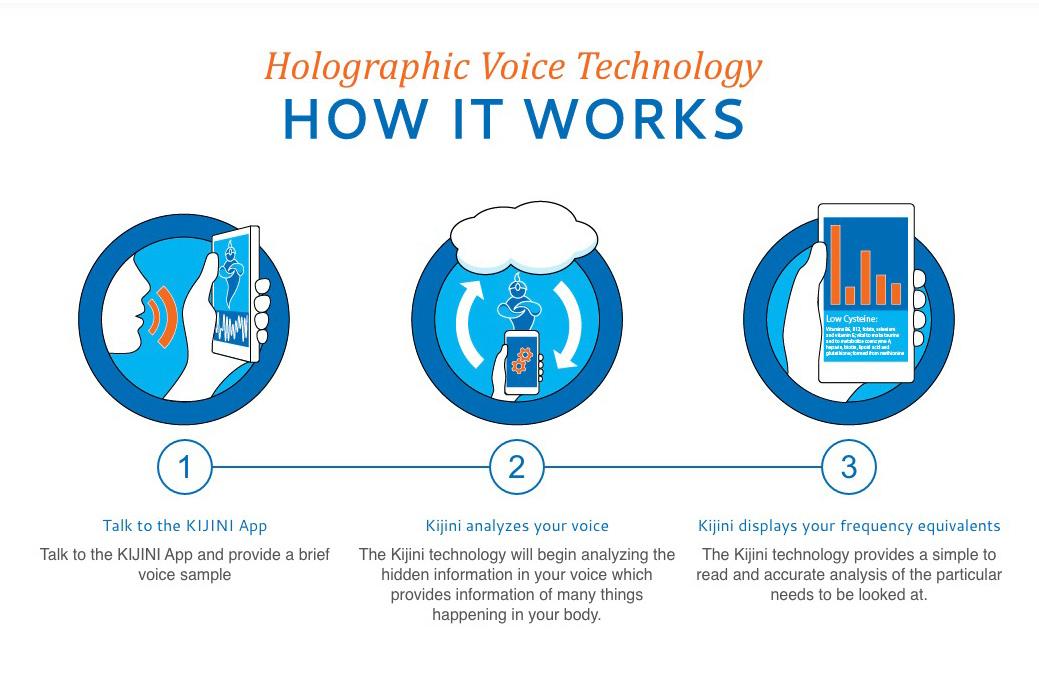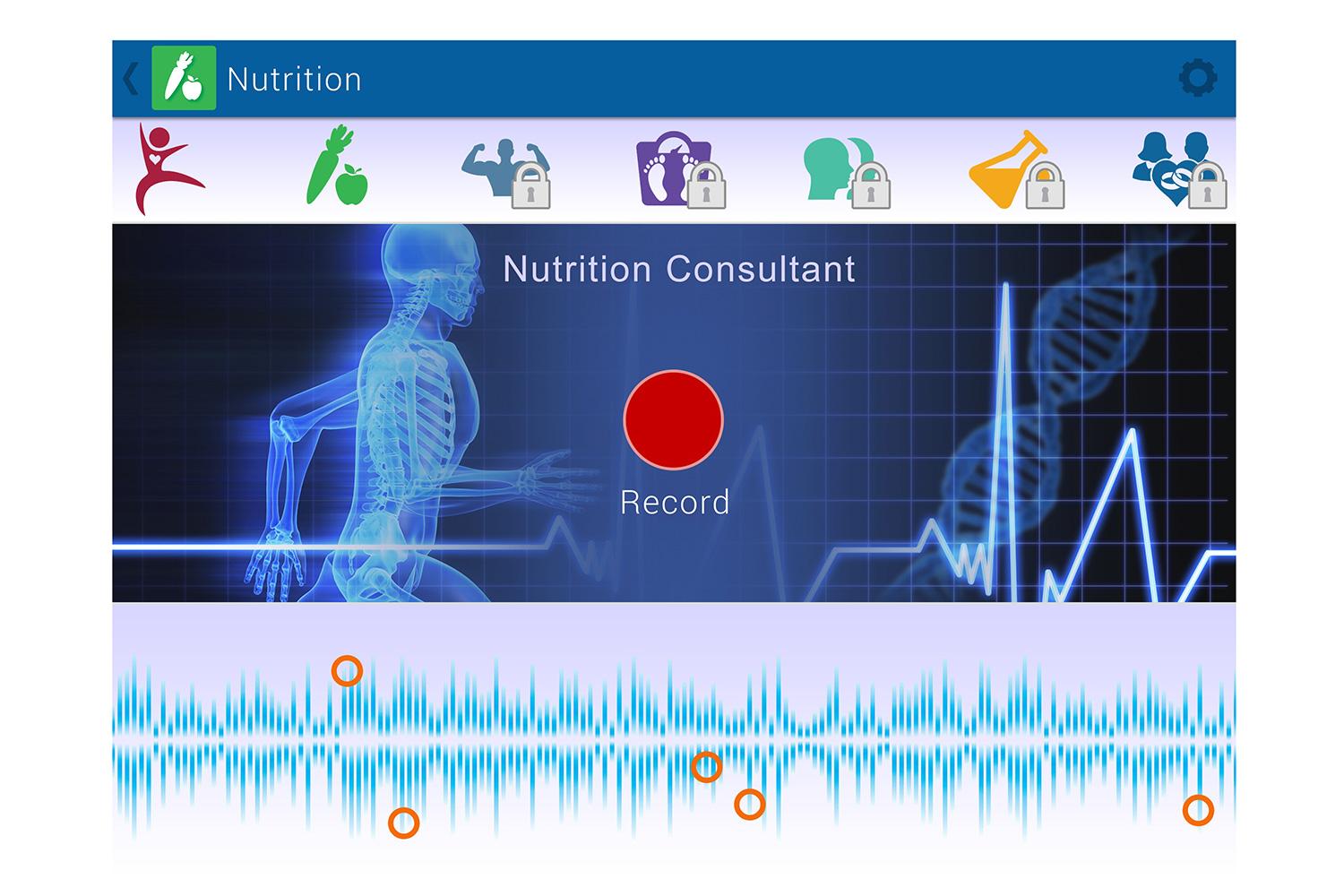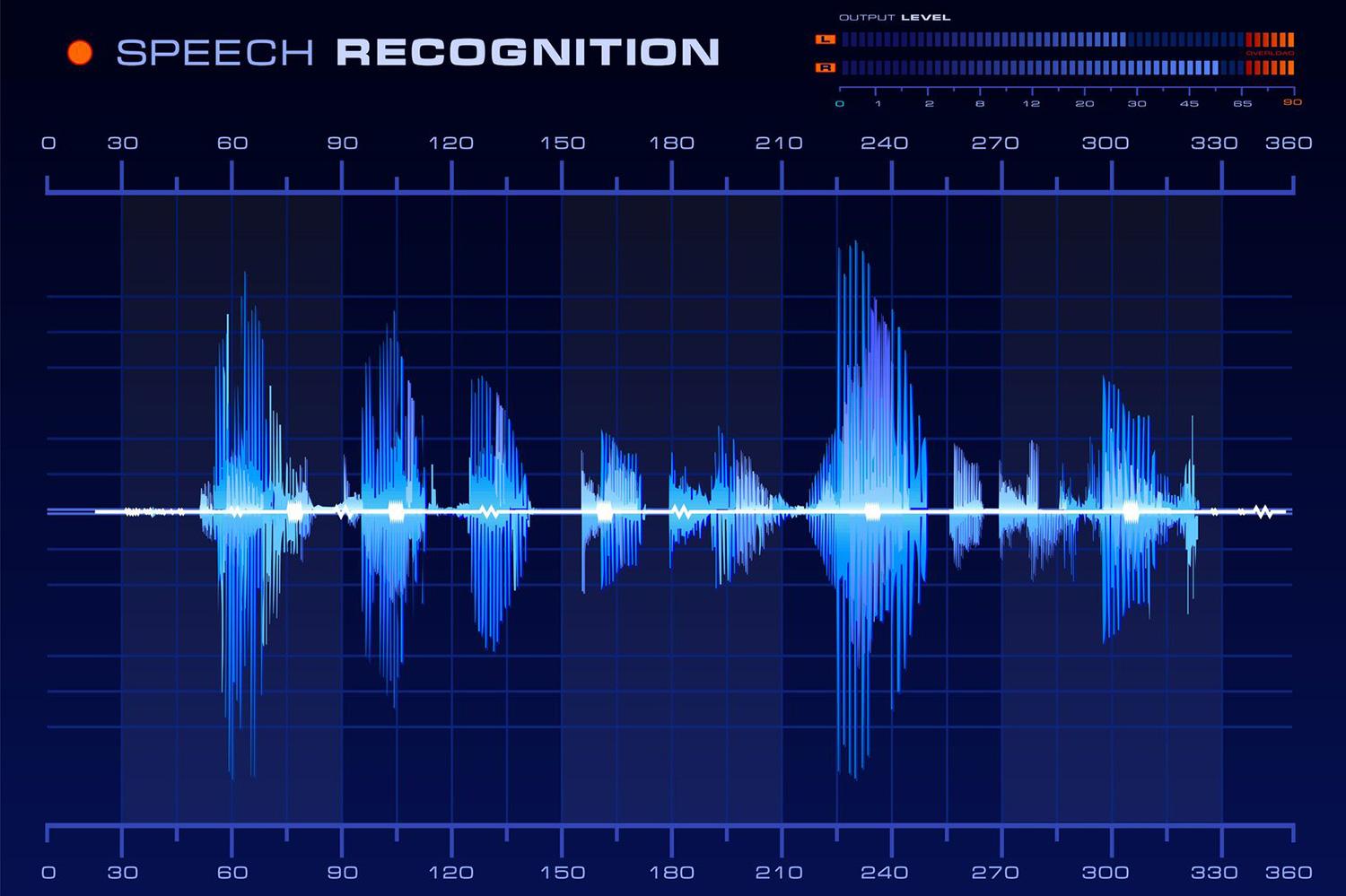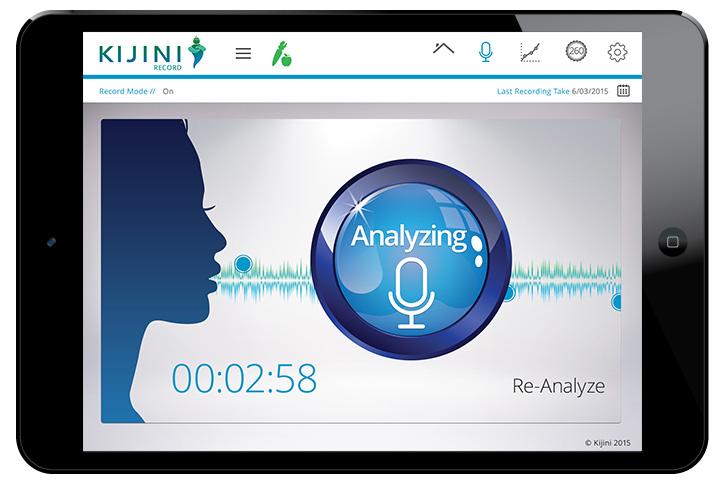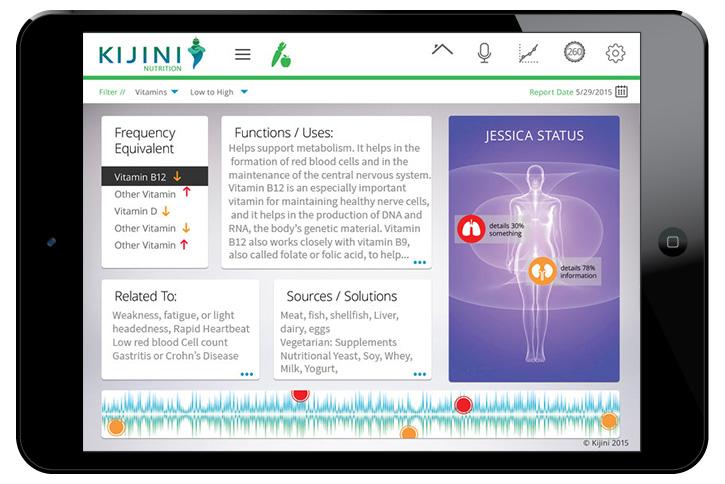
Your smartphone can tell the state of your health simply by listening to your voice. All it will need is a few apps under development by Kijini, a company that recently launched its Indiegogo campaign to take the concept of personal health to new levels.
“Frequencies determine physiology.”
The name Kijini marries two concepts, “Ki” for the Oriental word “chi” meaning life energy, and jinni, a wizard who can perform miracles. The company is developing a series of apps that will assess your physical and mental wellbeing. The apps will record your voice and analyze vibrational frequencies in it to detect information about any health issues you may have, including infections, toxin levels, vitamin needs, or nutritional deficiencies, says Matthew Sanderson, Kijini’s COO and a biologist by education.
What’s more, Kijini can even analyze your personality. Voice delivers a lot more info than we think, Sanderson told Digital Trends. Ever have one of these moments when someone calls and just by the sound of their voice you know something is wrong? We can detect that by vibrations in the person’s voice — frequencies, says Sanderson. In a similar way, certain frequencies can tell us what’s wrong with your body.
“Frequencies determine physiology,” Sanderson says.
It sounds like sci-fi, but it’s simply science. The idea has been in research over the past 25 years, says Sanderson, and it’s finally entering the mainstream health arena. When it launches in August, Kijini will simply bring together biology, neuroscience, and physics — and download it onto your smartphone. Here’s how it works.
Everything in this world, including animals and humans, operates on various frequencies. We see colors because our eyes can identify the particular light waves that correspond to colors like red, green, and blue, but not ultraviolet. We hear sounds because our ears can detect sound waves of certain frequencies, but not those beyond our limits of hearing. Yet there are thousands of other vibrational frequencies all of which deliver various information; humans simply aren’t equipped to detect all of it. But smartphones and other tools can.
According to quantum physics, all matter in the universe vibrates at different frequencies — including all of the atoms and molecules that make up the human body. Through biochemical interactions, the body tries to maintain these frequencies at levels necessary for optimal energy and wellness. When we get sick, or depressed, or accumulate environmental toxins, these frequencies change. Tumor cells vibrate at different frequencies than benign cells. Infected tissues give off a different vibe than healthy ones. When heavy metals are present in your body, they send off their specific vibes too. So after all, you vibrate just like your smartphone, albeit on different wavelengths.
The brain is the central processing unit for all the different frequencies your organs put out, but the way to listen to this sea of sounds is by a person’s voice. Human ears can’t pick up all of those wavelength varieties in your own voice, but special equipment can. Like Kijini’s apps. “The body is using biochemicals to maintain the homeostasis vibrationally,” says Sanderson. “And we’re able to see how the body operates from a vibrational perspective.”
To create the apps, Sanderson built upon the work of quantum physicists and the existing technology of bioacoustics, a scientific field in which complex software algorithms parse and analyze voice frequencies. After years of testing, bioacoustics researchers determined that frequencies that correspond to certain health problems—such as high blood sugar, Parkinson’s, or cancer—are consistent across people. So they catalogued those frequencies and built databases of them, which enable others to diagnose patients. Once a person’s voice is recorded, a software algorithm can parse it, match the frequencies to those in the databases, and zero-in on the body’s “bad vibes” — the manifestation of various maladies, from infections to depression.
Kijini takes this process out of research labs and makes it easy to use. When you record your voice on your smartphone, Kijini will analyze your vibes and search the databases to match your frequencies. The company’s initial release will include six apps: Personality, Nutrition, Muscles, Energy, Neurodiet, and Detox, with over 30 more to follow. The Personality app will be able to tell your strengths, weaknesses, and interests, and even blocks to success and health. Nutrition will inform you which minerals, amino acids, antioxidants, vitamins, and other body-building blocks are out of balance.
Because every muscle and vertebra in your body has its own frequencies, the Muscle app will determine which ones are weak or stressed or injury-prone. Heavy metals and other toxins vibrate to their own tune so that the Detox app can detect them and alert you if you could use some cleansing. The Energy app will help you beat fatigue and adrenal exhaustion; Neurodiet will help balance your nutrients for optimal weight.
“We’re able to see how the body operates from a vibrational perspective.”
All apps will be free to download and use for Android and iOS phones, with a pro version available for a subscription fee for health professionals. The apps aren’t meant to replace traditional diagnostic tools, Sanderson says, but they would make the diagnostic process easier — people would be able to ask for specific tests or skip those that aren’t necessary. Some of Kijini’s wellness apps may not require the help of medics at all — people will be able to try new vitamin or amino acid regiments on their own.
“It really gives people the ability to understand what’s happening in their bodies,” Sanderson says. “That’s why I wanted to put Kijini into the hands of people.”
Editor’s note: As always, an Indiegogo campaign is not a finished product. Until we’ve actually used it, it’s impossible to say if any piece of tech does what it says. Support this product at your own discretion.
